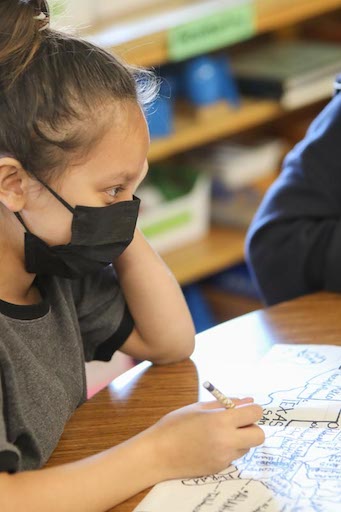
Montessori is an educational philosophy developed in the early 1900s by Dr. Maria Montessori, an Italian physician. It was her belief that children have a natural desire to learn, and with the right materials and structuring, school could be a place where children are self-directed learners, collaborators and problem-solvers.
Montessori children make creative and independent choices in discovering the people, places and knowledge of the world. There is an emphasis on hands-on, personalized learning, self-expression and citizenship in a carefully crafted school environment of respect, peace and joy.
The Eight Principles of Montessori Education
From Montessori: The Science Behind the Genius
| Traditional Classroom | Montessori Environment |
|---|---|
| Textbooks, pencil and paper, worksheets and photocopies | Prepared kinesthetic materials with incorporated control of error, specially developed reference materials |
| Working and learning without emphasis on social development | Working and learning matched to the social development of the child |
| Narrow, unit-driven curriculum | Unified, internationally developed curriculum |
| Individual subjects | Integrated subjects and learning based on developmental psychology |
| Block time, period lessons | Uninterrupted work cycles |
| Single-graded classrooms | Multi-age classrooms |
| Students passive, quiet, in desks | Students active, talking, with periods of spontaneous quiet, freedom to move |
| Product-focused report cards | Process-focused assessment, skills checklists, mastery benchmarks |
Additional information about Montessori Education: